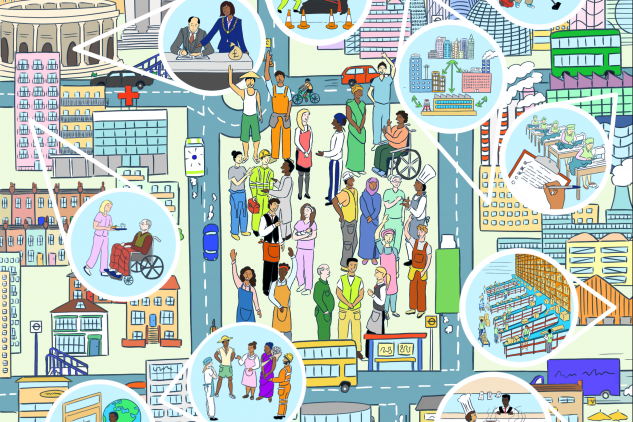
Seeing through transparency: FLEX launches action plan to prevent human trafficking for labour exploitation in global supply chains
How can we prevent human trafficking and forced labour through corporate accountability? Today FLEX has published an action plan for governments to make sure that the interests of workers are central to efforts to tackle human trafficking and forced labour in global supply chains. Seeing through transparency: a FLEX blueprint for worker-centred corporate accountability to prevent human trafficking for labour exploitation sets out ten government actions to make corporate accountability work for workers. The blueprint is the result of in-depth engagement with trade unions, businesses, academics and civil society. The research findings are captured in depth in our report: Seeing through transparency: making corporate accountability work for workers. The report examines transparency in supply chains legislation and draws on case studies from the UK and Bangladesh.
Making transparency work
Australia and other governments are following the UK’s example by introducing transparency in supply chains legislation to prevent human trafficking and forced labour in global supply chains. As an increasing number of governments are adopting transparency as a tool, FLEX asks how we make sure that the steps companies take to meet transparency requirements work for workers. The majority of interviewees agreed that to be effective, the UK Modern Slavery Act 2015 and similar legislation must be monitored and enforced. FLEX’s research finds that for company reports to be useful, governments must introduce more specific reporting requirements than is currently the case under the UK Modern Slavery Act 2015. When companies are free to choose what information to disclose, company practices that drive forced labour and human trafficking may go unnoticed.
More than transparency
Trade unions, companies, academics and civil society representatives interviewed by FLEX agree that if global efforts to end human trafficking and forced labour are to be successful, they cannot stop at transparency. Examples from Bangladesh and the UK point to serious barriers to workers’ ability to hold companies to account. In both countries, the poor enforcement of labour rights is a key issue. For companies, the lack of enforcement also creates a bias in favour of those businesses that are not serious about workers’ rights. In Bangladesh in particular trade unions are suppressed and workers’ voices are therefore often not heard.
FLEX’s action plan sets out the steps required by governments to develop a corporate accountability framework which levels the playing field for business and protects workers’ rights. Transparency is an important piece of the corporate accountability puzzle, however other essential elements of a state’s accountability framework include labour laws that protect workers’ rights and their enforcement; freedom of association and protections for migrant workers. Governments, with their considerable buying power, must take a leading role in preventing human trafficking and forced labour. This could be achieved by incentivising initiatives that increase workers’ access to justice and improve their working conditions.
See FLEX’s 10 recommended actions for corporate accountability to prevent human trafficking and forced labour here.
Read the full report here.
